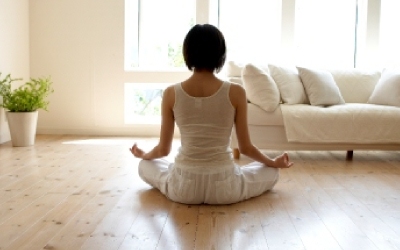How Does Meditation and Yoga Enhance Your Wellbeing?
If you say yes to yoga or don’t mind a bit of meditation, you may be improving your physical health – as well as your mental health and overall wellbeing. This is according to a new study, published in the open-access journal PLOS ONE, which has found that elicitation of the relaxation response (which is a physiologic state of deep rest induced by practices such as meditation, yoga, deep breathing and prayer) immediately changes how your genes involved in immune function, energy metabolism and insulin secretion are expressed.
The researchers from the Benson-Henry Institute for Mind/Body Medicine at Massachusetts General Hospital (MGH) and Beth Israel Deaconess Medical Centre (BIDMC) completed their study using a combination of advanced expression profiling and systems biology analysis. This allowed them to identify genes affected by relaxation response practice, and then to determine the potential biological relevance of those changes.
According to Herbert Benson, MD, director emeritus of the Benson-Henry Institute, ‘Many studies have shown that mind/body interventions like the relaxation response can reduce stress and enhance wellness in healthy individuals and counteract the adverse clinical effects of stress in conditions like hypertension, anxiety, diabetes and ageing. Now for the first time we’ve identified the key physiological hubs through which these benefits might be induced.’
Towia Libermann, PhD, director of the BIDMC Genomics, Proteomics, Bioinformatics and Systems Biology Centre and co-senior author of the study, commented, ;Some of the biological pathways we identify as being regulated by relaxation response practice are already known to play specific roles in stress, inflammation and human disease. For others, the connections are still speculative, but this study is generating new hypotheses for further investigation.’
A group of 26 healthy adults with no experience in relaxation response practice took part in the study. The participants completed an 8-week relaxation response training course, which led to changes in the expression of several important groups of genes between the novice samples and those from both the short- and long-term sets. Those who practised relaxation response over a long time exhibited even more pronounced changes. Benson asserted that the long-term practitioners in this study elicited the relaxation response through many different techniques; various forms of meditation, yoga and prayer. However, these differences were not reflected in the gene expression patterns.


Comments are closed.